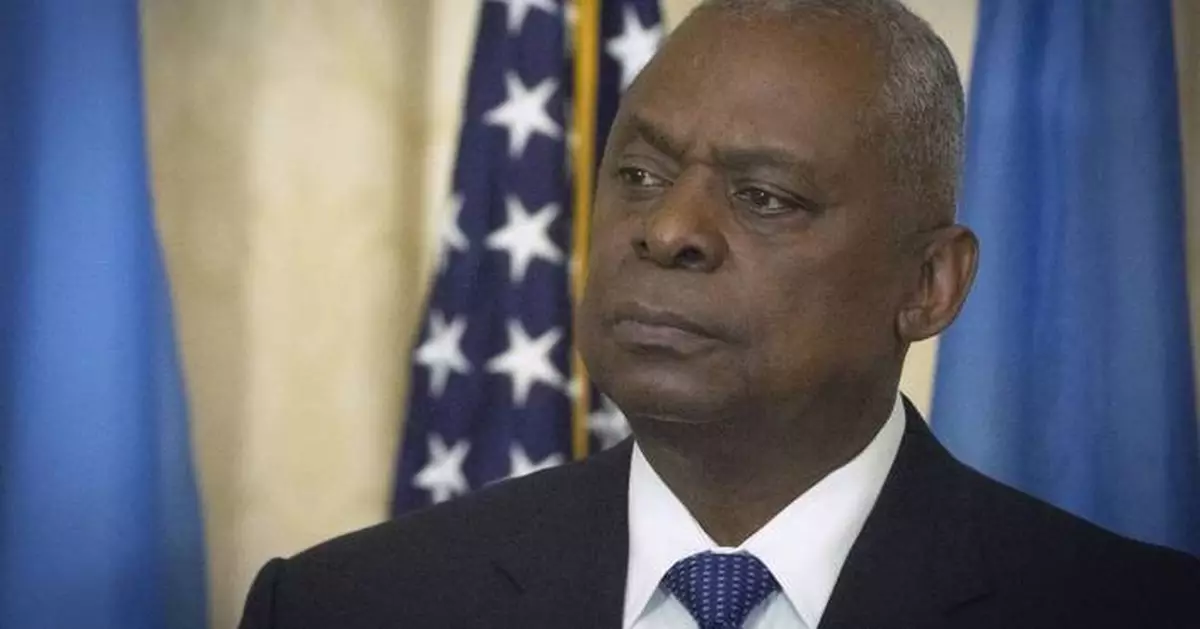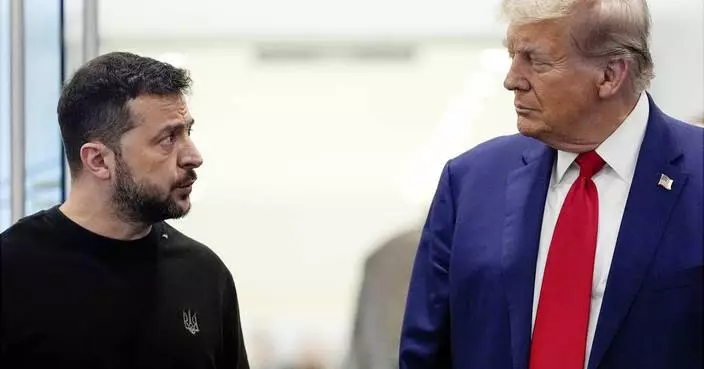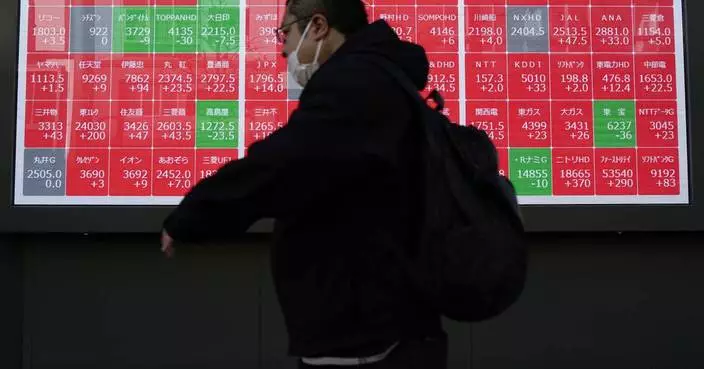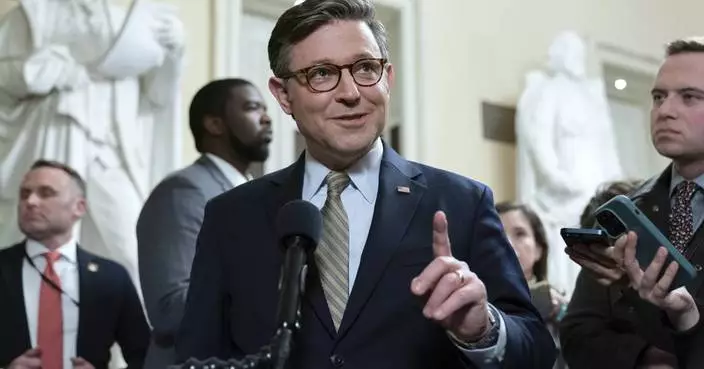WASHINGTON (AP) — A military appeals court has ruled against Defense Secretary Lloyd Austin's effort to throw out the plea deals reached for Khalid Sheikh Mohammed and two other defendants in the 9/11 attacks, a U.S. official said.
The decision puts back on track the agreements that would have the three men plead guilty to one of the deadliest attacks on the United States in exchange for being spared the possibility of the death penalty. The attacks by al-Qaida killed nearly 3,000 people on Sept. 11, 2001, and helped spur U.S. invasions of Afghanistan and Iraq in what the George W. Bush administration called its war on terror.
The military appeals court released its ruling Monday night, according to the U.S. official, who was not authorized to discuss the matter publicly and spoke on condition of anonymity.
Military prosecutors and defense attorneys for Mohammed, the accused mastermind of the attacks, and two co-defendants reached the plea agreements after two years of government-approved negotiations. The deals were announced late last summer.
Supporters of the plea agreements see them as a way of resolving the legally troubled case against the men at the U.S. military commission at Guantanamo Bay naval base in Cuba. Pretrial hearings for Mohammed, Walid bin Attash and Mustafa al-Hawsawi have been underway for more than a decade.
Much of the focus of pretrial arguments has been on how torture of the men while in CIA custody in the first years after their detention may taint the overall evidence in the case.
Within days of news of the plea deal this summer, Austin issued a brief order saying he was nullifying them.
He cited the gravity of the 9/11 attacks in saying that as defense secretary, he should decide on any plea agreements that would spare the defendants the possibility of execution.
Defense lawyers said Austin had no legal authority to reject a decision already approved by the Guantanamo court's top authority and said the move amounted to unlawful interference in the case.
The military judge hearing the 9/11 case, Air Force Col. Matthew McCall, had agreed that Austin lacked standing to throw out the plea bargains after they were underway. That had set up the Defense Department's appeal to the military appeals court.
Austin now has the option of taking his effort to throw out the plea deals to the U.S. Court of Appeals for the District of Columbia Circuit. The Pentagon did not immediately respond to a request for comment.
Separately, the Pentagon said it had repatriated one of the longest-held detainees at the Guantanamo military prison, a Tunisian man who U.S. authorities approved for transfer more than a decade ago.
Ridah bin Saleh al-Yazidi's return to Tunisia leaves 26 men at Guantanamo. That's down from a peak population of about 700 Muslim men detained abroad and brought to the prison in the years after the Sept. 11 attacks.
Al-Yazidi's repatriation leaves 14 men awaiting transfer to other countries after U.S. authorities waived any prosecution and cleared them as security risks.
The Biden administration, pressed by rights groups to free remaining Guantanamo detainees held without charge, transferred out three other men this month. The U.S. says it is searching for suitable and stable countries willing to receive the remaining 14.
In a statement, the U.S. military said it had worked with authorities in Tunisia for the “responsible transfer” of al-Yazidi. He had been a prisoner at Guantanamo since 2002, when the U.S. began sending Muslim detainees taken abroad there.
Al-Yazidi is the last of a dozen Tunisian men once held at Guantanamo.
Of those remaining at Guantanamo, seven — including Mohammed and his 9/11 co-defendants — face active cases. Two others of the 26 total have been convicted and sentenced by the military commission.
AP reporter Tara Copp contributed from Washington.
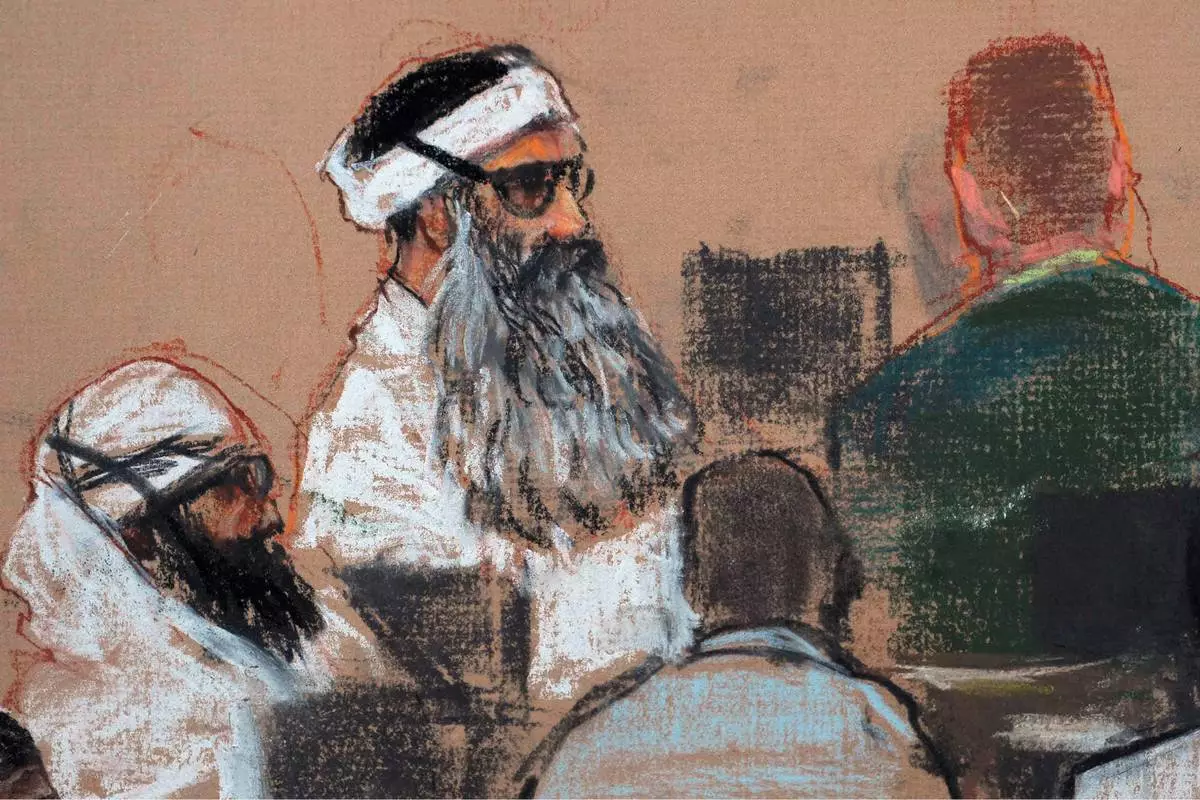
FILE - This Monday, Dec. 8, 2008 courtroom drawing by artist Janet Hamlin and reviewed by the U.S. military, shows Khalid Sheikh Mohammed, center, and co-defendant Walid Bin Attash, left, attending a pre-trial session at Guantanamo Bay Naval Base, Cuba. (AP Photo/Janet Hamlin, Pool, File)
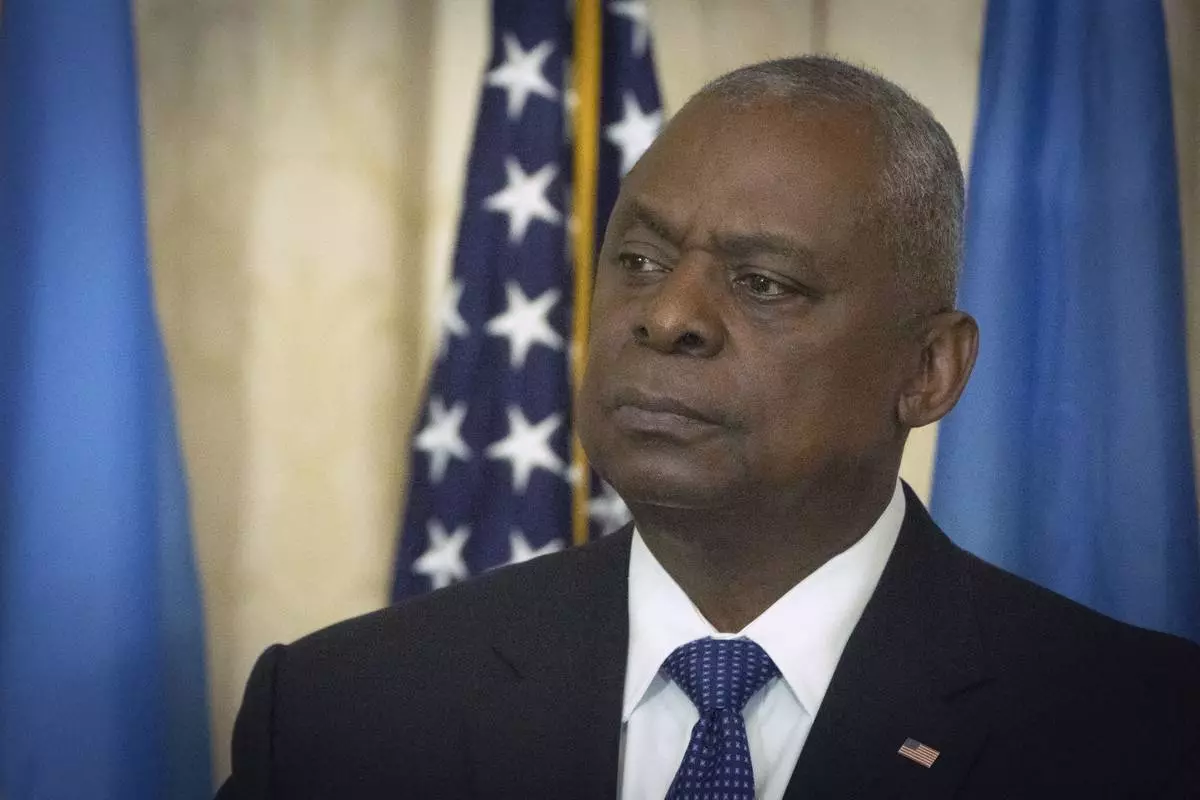
FILE - US Secretary of Defence Lloyd Austin makes a speech at Diplomatic Academy of Ukraine in Kyiv, Ukraine, Monday, Oct. 21, 2024. (AP Photo/Efrem Lukatsky, File)
WASHINGTON (AP) — President Joe Biden has rejected the nearly $15 billion proposed deal for Nippon Steel of Japan to purchase Pittsburgh-based U.S. Steel — affirming his earlier vow to block the acquisition of Steeltown USA’s most storied steel company.
“We need major U.S. companies representing the major share of US steelmaking capacity to keep leading the fight on behalf of America’s national interests,” Biden said in a Friday morning statement.
His decision comes after the Committee on Foreign Investment in the United States, known as CFIUS, failed to reach consensus on the possible national security risks of the deal last month, and sent a long-awaited report on the merger to Biden. He had 15 days to reach a final decision.
The committee, chaired by Treasury Secretary Janet Yellen and made up of other Cabinet members, can recommend that the president block a transaction, and federal law gives the president that power.
A U.S. official familiar with the matter, who spoke on condition of anonymity, told The Associated Press last month that some federal agencies represented on the panel were skeptical that allowing a Japanese company to buy an American-owned steelmaker would create national security risks.
The decision comes just weeks before the Democratic president is set to leave office and could damage relations between the U.S. and Japan, which is America’s biggest ally in Asia. Japan is also the largest foreign holder of U.S. debt.
Biden previously came out against the deal last March — and was backed by the United Steelworkers, concerned over whether the company would honor existing labor agreements or slash jobs, as well as over the firm’s financial transparency.
“It is important that we maintain strong American steel companies powered by American steel workers,” Biden said in a March statement, while he was still seeking reelection to the presidency before dropping out of the race. “U.S. Steel has been an iconic American steel company for more than a century, and it is vital for it to remain an American steel company that is domestically owned and operated.”
President-elect Donald Trump has also opposed the acquisition and vowed in December on his Truth Social platform to block the deal and to use tax incentives and tariffs to grow the company.
On Friday, Steelworkers President David McCall said the union is grateful for Biden's move to block the sale and called it the “right move for our members and our national security.”
McCall had long questioned Nippon Steel's status as an honest broker for U.S. national trade interests and reiterated that Friday, saying in a statement that “Nippon has proven itself to be a serial trade cheater."
“Allowing it to purchase U.S. Steel would have offered it the opportunity to further destabilize our trade system from within and in the process, compromise our ability to meet our own national security and critical infrastructure needs,” McCall said.
McCall insisted that U.S. Steel has the financial wherewithal to make the company strong and resilient.
For its part, Nippon Steel had said it is best positioned to help American steel compete in an industry dominated by the Chinese and to invest billions in United Steelworkers-represented facilities, including the company's aging blast furnaces.
It pledged to protect U.S. Steel in trade matters, and promised not to import steel slabs that would compete with the blast furnaces.
Nippon Steel announced in December 2023 that it planned to buy the steel producer for $14.9 billion in cash and debt, and committed to keep the U.S. Steel name and Pittsburgh headquarters. Despite that, its proposal raised concerns about what the transaction could mean for unionized workers, supply chains and U.S. national security.
The announcement came during a tide of renewed political support for rebuilding America’s manufacturing sector and followed a long stretch of protectionist U.S. tariffs that analysts say have helped reinvigorate domestic steel.
Nippon Steel waged a public relations campaign to win over supporters, even offering $5,000 in closing bonuses to U.S. Steel employees, a nearly $100 million expense.
A growing number of conservatives and business groups like the U.S. Chamber had publicly backed the deal, as Nippon Steel began to win over some Steelworkers union members and mayors in areas near its blast furnaces in Pennsylvania and Indiana.
Mike Pompeo, who served as Trump’s first secretary of state, called a potential rejection of the deal “shortsighted” in the Wall Street Journal last month.
“The deal would strengthen U.S. Steel’s current operations and production capacity, benefit its workers and their communities, and enhance the competitiveness of the American steel industry,” he wrote.
Levy reported from Harrisburg, Pennsylvania.
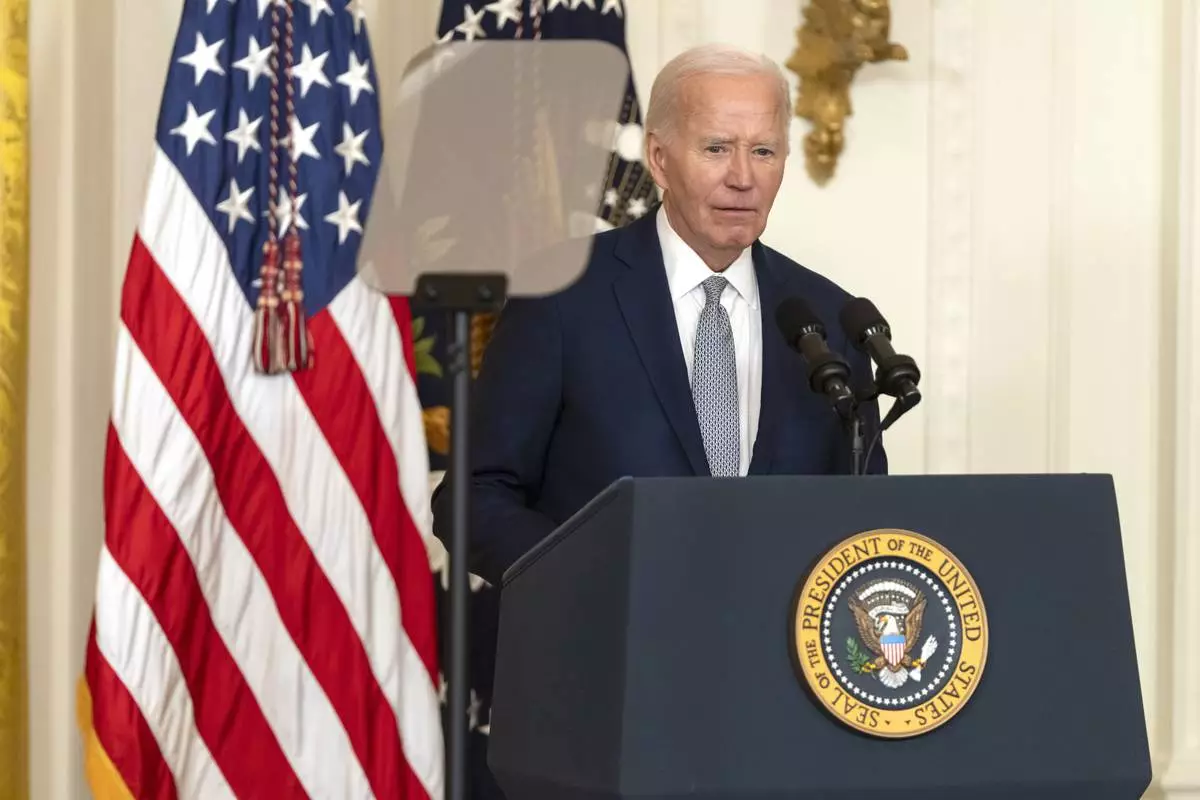
President Joe Biden speaks at an event to award the Presidential Citizens Medal to recipients in the East Room at the White House, Thursday, Jan. 2, 2025, in Washington. (AP Photo/Mark Schiefelbein)




